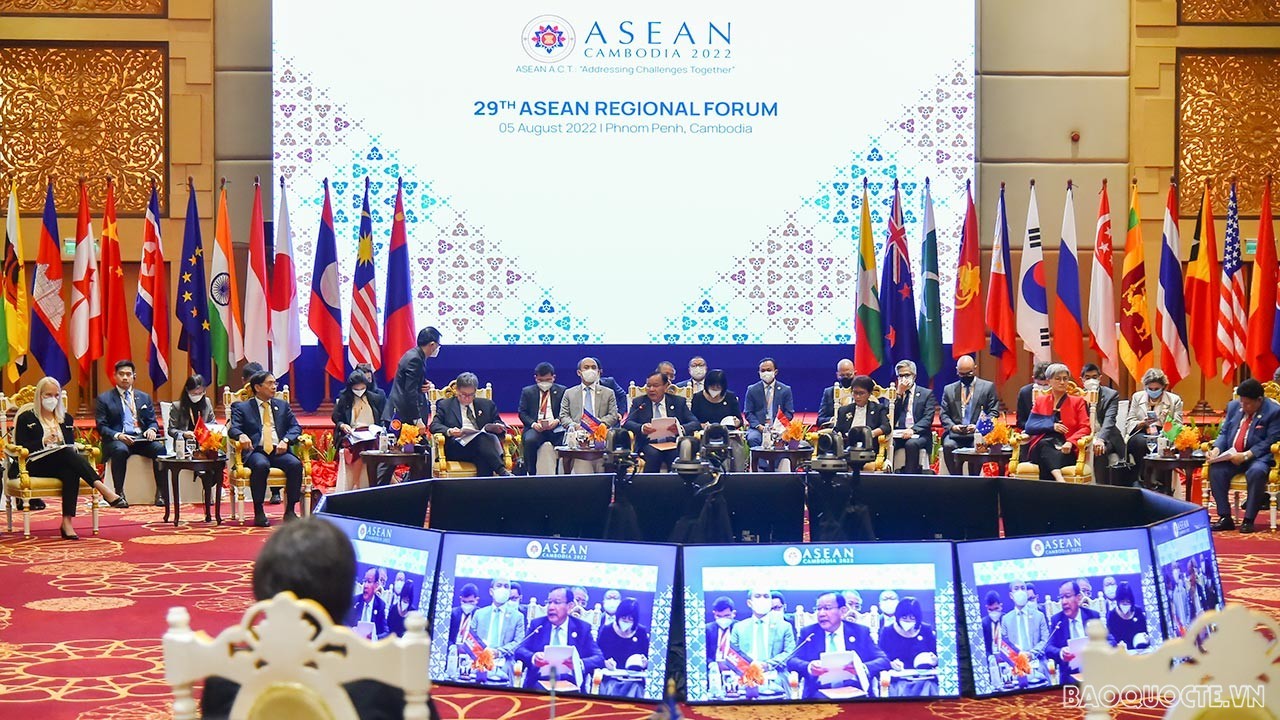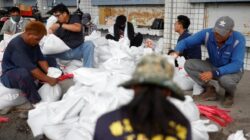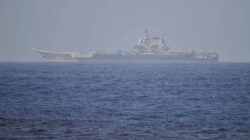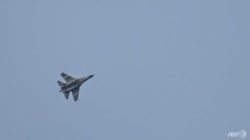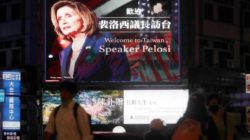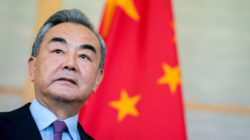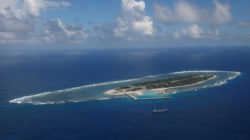Phnom Penh – According to conference sources, a schism was uncovered Friday at a regional ministerial gathering of 18 Asia-Pacific countries over China’s continuous military maneuvers near Taiwan in reaction to a high-level US visit to the island and Russia’s invasion of Ukraine.
Participants in the East Asia Summit’s foreign ministry session in Phnom Penh, including the United States, Japan, China, and Russia, exchanged barbs on the Taiwan problem and the Ukraine crisis, they said.
Japanese Foreign Minister Yoshimasa Hayashi urged Beijing to immediately stop the military exercise involving missile launches conducted in response to U.S. House of Representatives Speaker Nancy Pelosi’s recent visit to the self-ruled island, according to the Japanese Foreign Ministry.
On Thursday, five of the ballistic missiles launched in the exercise fell into Japan’s exclusive economic zone, according to the Japanese government. Multiple countries rapped China’s firing of them, the ministry said.
Chinese Foreign Minister Wang Yi rebutted Hayashi’s claim, saying Japan and China have yet to demarcate the waters, according to Association of Southeast Asian Nations sources.
In Beijing, Chinese Foreign Ministry spokeswoman Hua Chunying said the military had issued safety alerts and there were no locations in the relevant waters that could be designated Japan’s EEZ.
Before the drill began on Thursday, Japan expressed concern to the Chinese side that a Chinese-designated military training region overlaps with the Japanese EEZ.
According to ASEAN sources, US Secretary of State Antony Blinken justified Pelosi’s Taiwan visit at the EAS session, saying it was a “peaceful” trip and not a “provocation.”
When Hayashi spoke at the meeting of the ten ASEAN nations, Japan, China, South Korea, Australia, New Zealand, India, the United States, and Russia, Wang and Russia’s Sergey Lavrov walked out.
At a press briefing on Friday, a Chinese Foreign Ministry spokesperson said Wang’s behavior at the meeting was due to Japan’s criticism of China’s response to Pelosi’s visit, claiming Tokyo behaved “very improperly” on the Taiwan issue and enraged Chinese people.
According to the Japanese ministry and ASEAN sources, Hayashi, along with Blinken and other participants, denounced Moscow for its invasion of Ukraine, which began in late February.
The senior diplomats met a day after the Chinese military began large-scale live-fire training near Taiwan, which Beijing regards as a renegade province that must be reunified with the mainland.
According to Taiwan’s Defense Ministry, 11 ballistic missiles were fired near the self-ruled island on the opening day of the military exercise.
China quickly canceled a planned bilateral meeting between Hayashi and Wang on Thursday in response to a Group of Seven statement criticizing China’s response to Pelosi’s visit to Taiwan. The G-7 includes Japan and the United States.
Hayashi called the decision to cancel “regrettable,” adding that “dialogue is now more vital than ever amid escalating tensions” between the countries.
The regional summit also coincided with Russia’s growing schism with the West and other nations, notably Japan, which has imposed heavy economic penalties on Moscow in response to its invasion of Ukraine.
China has not joined the punitive measures aimed at isolating Russia. Instead, it appears to have increased collaborative military efforts with Moscow, particularly in and above the waters surrounding Japan.
China, India, Vietnam, and Laos abstained from voting in March on a United Nations General Assembly resolution urging Russia to end its aggression in Ukraine.
Source: KYODO NEWS


